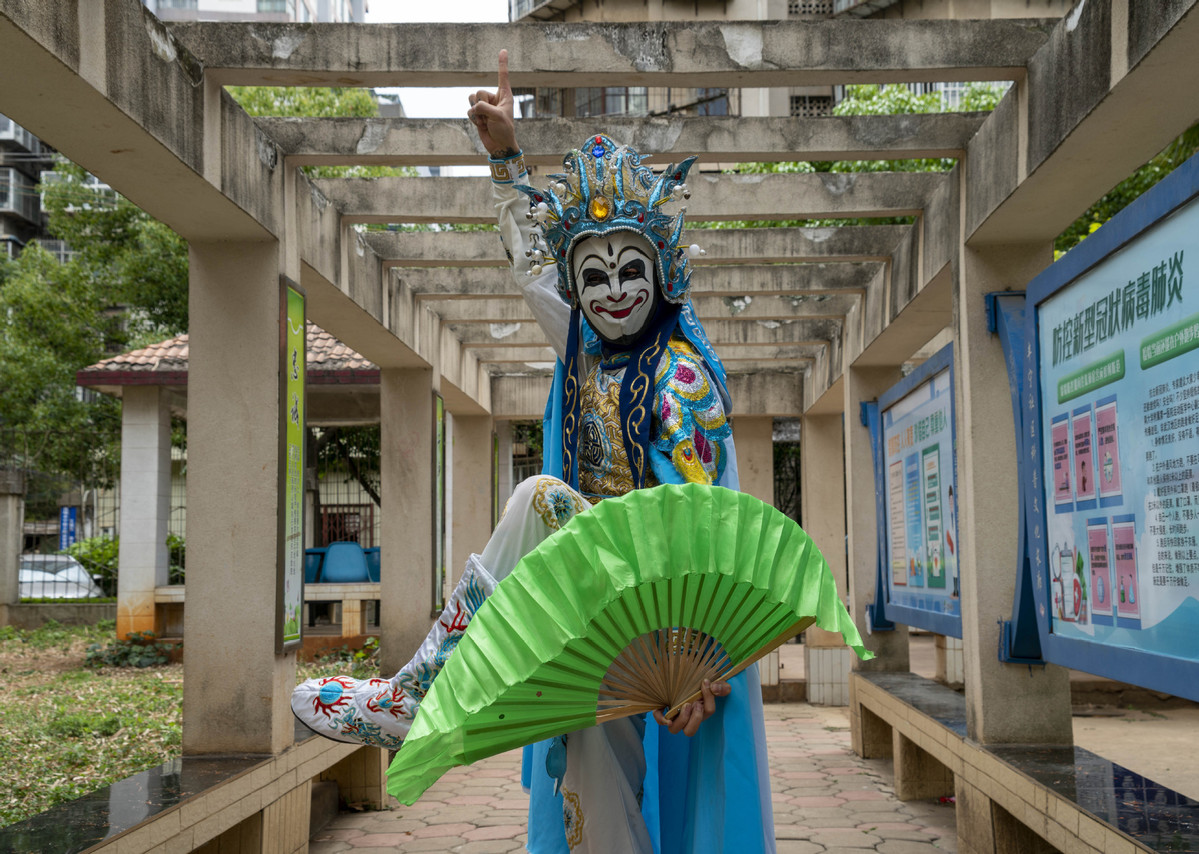

The restaurant is small with 10 tables crammed inside. On a table in the corner equipment is set up for livestreaming. Yao is actively sharing Sichuan Opera and face-changing culture with his followers nationwide on livestreaming platforms.
To get prepared for the next stage, Yao asks his apprentices to practice their operatic performances and corrects their moves every day.
"Although our performances have been disrupted, the practice of face-changing can't stop, otherwise we would be at a loss on the stage," he says.
Ye Di, a 20-year-old man from Southwest China's Chongqing city, followed Yao to learn face-changing techniques several years ago. Now he is also a cashier at the restaurant.
"I was quite surprised at first but I have gradually adapted to my new role. Yao came up with this method just to keep the team together," Ye says.
The restaurant has been open for more than a month with a daily income of nearly 1,000 yuan ($140). When there are few customers, Ye and his fellows will practice performing in front of the restaurant. Once customers arrive, they will instantly change their roles to cooks and waiters.
"I already felt tired learning face-changing, but never imagined it could be even more exhausting to run a restaurant. What really tormented me most was washing dishes," says Yao.
After graduating from senior high school, Yao once worked as a security guard, a host, a singer and even engaged in growing herbs. The idea of becoming a face-changing performer, however, always lingered in his heart. So he went to Sichuan province, where face-changing originated, and usually stayed there for a month to watch and learn the most authentic performing techniques.
"I spent almost four years learning the rudiments of face-changing, then another 10 years studying how to make props and face masks for performances," says Yao.
Since 2016 he has been occupied with performances.
Despite the epidemic, many people like Yao have only grown stronger when confronted with adversity.
"We should be tough and optimistic when facing difficulties. This is a precious and age-old tradition of the Chinese people," says Yao.